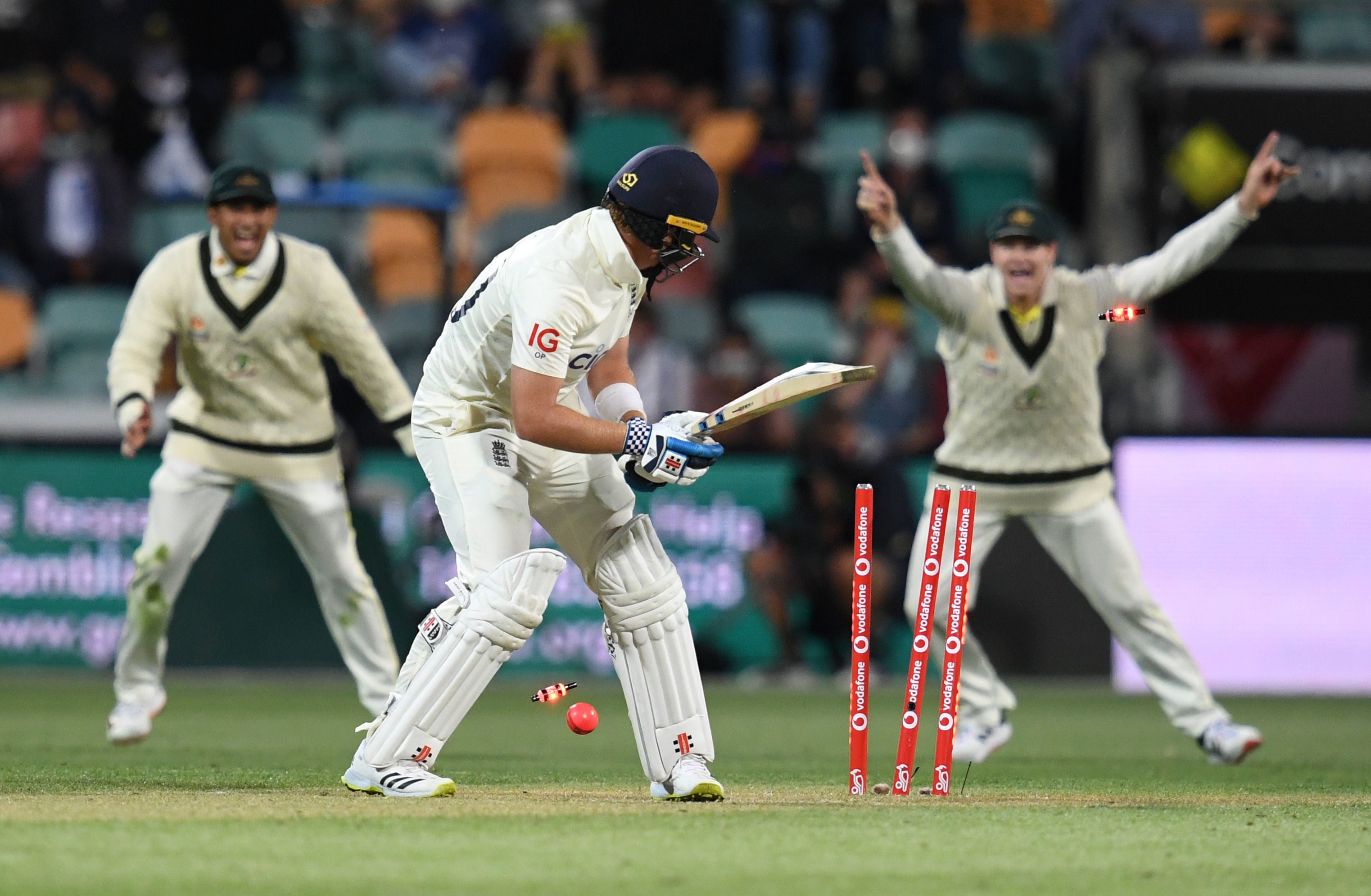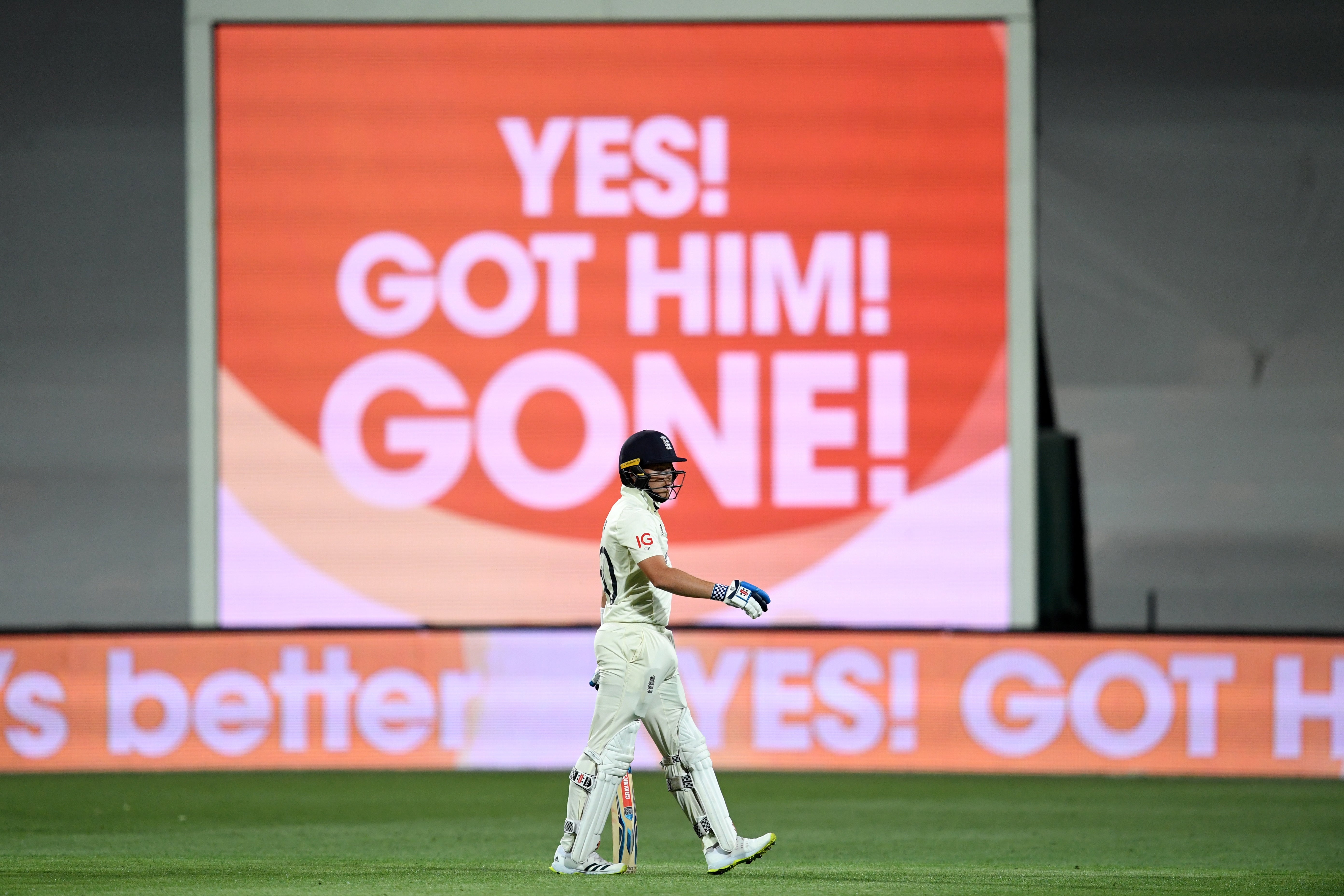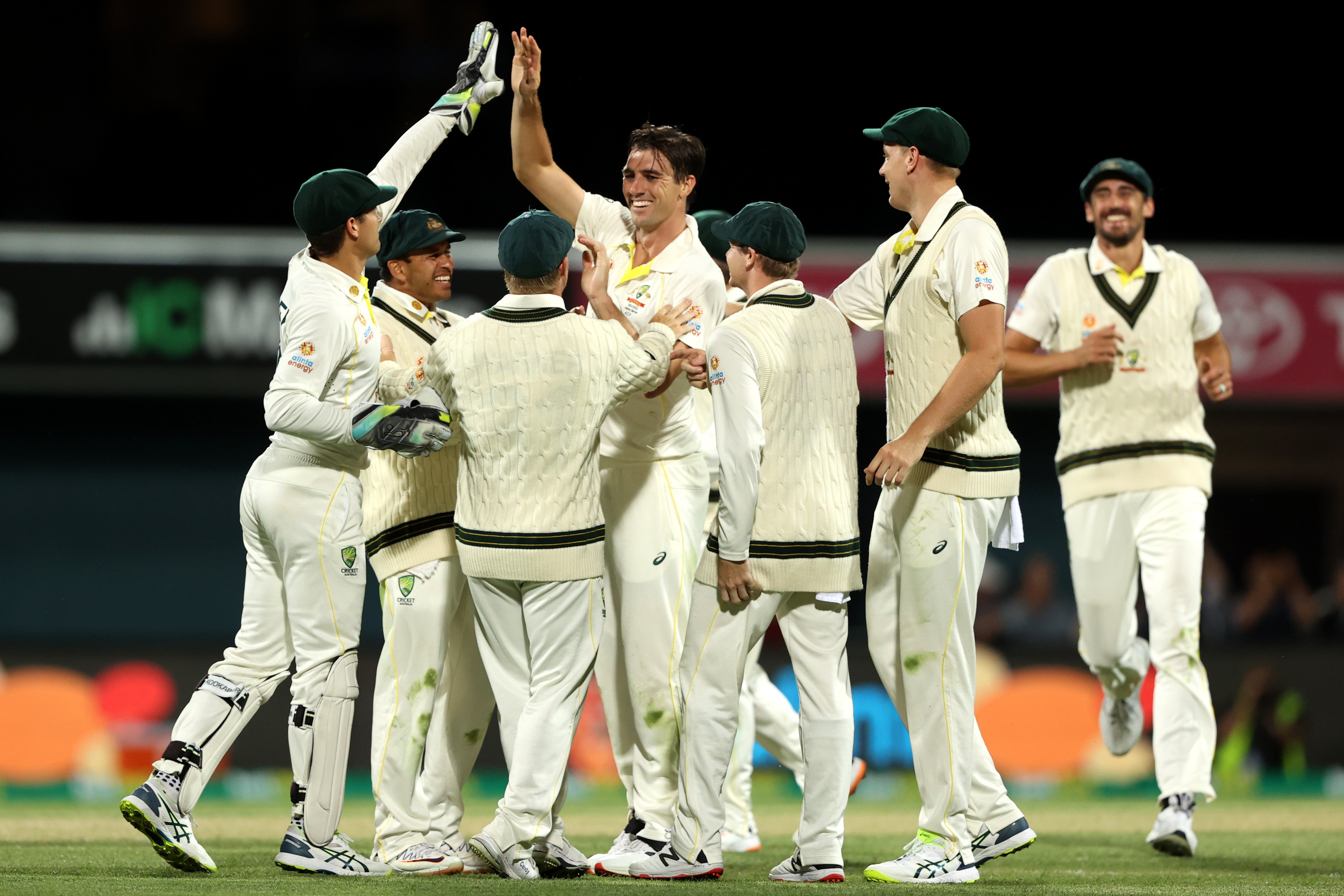
It was undoubtedly rancid and yet, at the same time, appropriate. The last 10 wickets lost for 56 runs. The only anomaly that it started with an opening stand of 68: England’s largest of this Ashes series and yet knowingly insignificant. Finally, the opening batters had given Australia something to worry about. Of course, it was for nothing.
It might be worth starting there, and that opening stand. That incorrigible combination England have struggled with for the last four years and “finally” cracked. Even then, on a whim, with Rory Burns recalled after he was dropped for the third Test and replaced by Zak Crawley who would be his partner for this stand, in place of the original survivor Haseeb Hameed. We’d reach that stage of the multi-universe in this Ashes series.
All three selected, dropped and recalled on merit and demerit. All worth and unworthy of the spots they occupied and were relinquished of. Any combination of the two deigned to succeed or fail off the back of however badly the previous iteration were. The stand mattered and then didn’t, because how could it ever?
And then onto the golden boy. Not that one, the other. Ollie Pope. Remember him? Remember the name. Or this dismissal, at least: Bowled around his legs, valiant and yet foolishly on an off stump guard that’s perfect for Australia but yet comically misguided because, yeah, he was bowled around his legs.
The Surrey goat, first-class average of 73, suddenly flummoxed as much by the ball full of length as the badge on his chest. The Sam Billings clone. Or rather, the Sam Billings counter: the alike who focussed on the red ball instead of letting the white take their focus. Except there they both were, together in the first and second innings of Hobart, mirror imaging like what either could have won or should have been. Different routes to the same destination – the same inglorious end.

But what of the real golden boy. Joe Root, clipped just above the heels by a ball that kept low, thus ensuring a 2021 that featured 1,708 runs would be asterisked by an Ashes with an average of 32 and still that elusive hundred. He had been boldest when the urn was more or less in opposition hands: certain of a first century Down Under into Melbourne and yet never further away than his second knock of 89 at Brisbane. One that belonged in 2021 as a relative disappointment ahead of the trauma that followed.
There was no zing to his steps by the end, even with Ben Stokes established by his side for the entire course. An average of 23.60 and 71.50 the wrong way around: this totem allrounder creaking to the end. England’s surprise late infusion undercooked yet valiant, a toad rather than ace on the whole throughout.
There’s not much to say about the rest because the rest mattered little. England’s bowlers might have been the only crumbs of comfort, whether it was a reminder of James Anderson and Stuart Broad’s worth reiterated, or the emergence of Ollie Robinson and the re-emergence of Mark Wood. But all that was left of this final day was Wood’s six wickets that felt admonished in their own way as he hooked a ball onto his stumps.

When the end came, it felt like relief. Robinson’s step away to have his stumps rearranged by a Pat Cummins full toss felt like the microcosm of the microcosm. Australia didn’t have to even be that good to elicit this 4-0 that felt like six. England simply couldn’t operate anywhere near the same space.
One of the peculiar benefits of a series lost so early is that by the time we get to cycle through the stages. The blame has been placed on county cricket, the England and Wales Cricket Board and the leadership group. And now was the time to wonder if these players simply weren’t good enough. In many ways, this was acceptance.
But enough time had passed since Melbourne for clarity. And what needs to be said is those out in Australia were the best available. There are no glaring omissions, and, for now, no rough diamonds in the shires. For all the dismay towards the openers, the young dedicated red-ballers and the white-ball Charlies, and the trusted sorts, this is as good as it was going to get.

The question to ask is not how, because we knew how. This was always going to be a challenge, especially off the back of two years of performative indifference to the Test format. But rather, why? Why did it have to be this way? Why is it that two years of planning could lead to a very reasoned yet dispiriting humbling? Why, despite the evidence, was it allowed to continue to be?
The answers pertain to leadership. Specifically, a lack of it. Chris Silverwood, genial and inadequate. Ashley Giles, managing director of men’s cricket, withdrawn and all too passive. Tom Harrison, far enough removed for it not to be his problem. All three absent and present over the last six weeks but only now coming into full view as those who have had to front up finally get a moment of peace.
The real glory of this demise was the chance for those players to slip away. All accepting their shame as quickly as possible to ensure an even quicker retreat back home and into the margins. Their only focus to forget rather than learn. Because, really, to learn from this would be to consider your entire existence.

There is a fundamental ill in English cricket relating to preparation for the higher level and the scope for Test cricket. And the latter can only be addressed if the former is given more focus. All the talk was of how important this series was but the overriding feeling is those who had to act on it were ill-equipped to even muster a contest.
As such, this final defeat in the fifth Test felt reasonable and necessary. Anything less than humiliation might have papered over the cracks, just as the draw in Sydney threatened to do. That it wasn’t 5-0 felt lucky given Australia’s outright dominance, but 4-0 is still enough for change. And such is the state of English Test cricket, whatever that change proves to be, it will feel neither satisfying nor enough.







